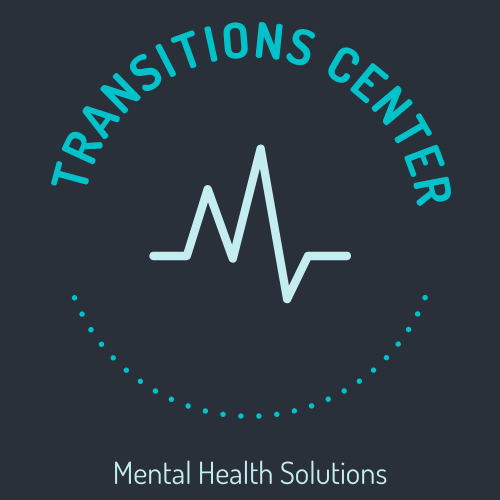
Depression is a mental illness that affects many people around the world. It can be difficult to deal with, and sometimes the people around you don’t know what to say. This can lead to them saying things that are not helpful or supportive. In this article, we will discuss 10 things you should never say to someone with depression.
How to tell if a loved one is displaying signs of depression
It can be difficult to tell if a loved one is displaying signs of depression. Often, people with depression will try to hide their symptoms from those around them. However, there are some tell-tale signs that may indicate that a loved one is struggling with depression. If you notice any of the following signs in a loved one, it may be time to have a conversation about depression:
– withdrawing from social activities and hobbies that they used to enjoy
– appearing more tired and sluggish than usual
– exhibiting changes in eating habits, either eating much more or much less than usual
– complaining about physical aches and pains that don’t have an obvious cause
– expressing feelings of hopelessness or worthlessness
– having difficulty concentrating or making decisions
– talking about death or suicide.
What Not to Say to a Depressed Person
The number of individuals who are diagnosed with clinical depression is ever increasing. It might be tough for you to completely comprehend what clinical depression feels like if you have never experienced it before. Instead of offering what appears to be sensible advice to someone who is depressed, consider the depths of their despair and the consequences of your speech. Words have a tremendous influence in people’s lives.
1. “Just snap out of it.”
This is probably the most frustrating thing you can say to someone with depression. It implies that depression is just a choice and that the person suffering from it could just “snap out of it” if they really wanted to. If we could just “snap out of it,” we would. Suggesting that they turn it off may not be the best idea. Instead, try letting them know that you understand their struggles. This act of understanding is a rare gift to someone who needs it.
2. “It’s all in your head.”
Depression is very real, even though it’s not physical. Telling someone with depression that their condition is “all in their head” invalidates their experiences and makes them feel like they’re crazy.
3. “You don’t look depressed.”
Just because someone doesn’t look sad on the outside, doesn’t mean they’re not depressed on the inside. Depression doesn’t have one specific look, so don’t assume you can tell whether or not someone is suffering from it just by looking at them.
4. “Have you tried just being happy?”
Happiness is not a choice, and depression is not something that can be simply turned off. Telling someone with depression to “just be happy” is like telling someone with cancer to “just stop having cancer.” It’s not that simple.
5. “I know how you feel.”
Unless you’ve been through depression yourself, you can’t possibly know how the person feels. Even if you have been through depression, every individual experiences it differently, so your experience may not be exactly the same as theirs.
6. “It’s not that bad.”
Depression can be absolutely debilitating, and telling someone with depression that their condition is “not that bad” invalidates their experiences and makes them feel like you don’t understand.
7. “You’re just looking for attention.”
People with depression are not looking for attention. They’re often trying to hide their condition because they feel ashamed or embarrassed. Depression is a very real illness, not a cry for help.
8. “You should be grateful for what you have.”
While it’s important to be grateful for the good things in life, this isn’t always possible when you’re dealing with depression. When you’re in the midst of a depressive episode, it can be hard to see anything good in your life.
9. “You’re just lazy.”
Depression is not laziness. It’s an illness that affects every single part of your life, and it takes a lot of energy just to function on a day-to-day basis.
10. “Just think positive.”
Thinking positive is not always possible when you’re dealing with depression. Depression often causes negative thinking patterns that are very difficult to break out of.
If you know someone who is dealing with depression, the best thing you can do is be there for them and offer support. Avoid saying any of the above phrases, and try to be understanding and patient.
What Can You Do?
Remember that depression is a medical condition that needs to be treated, whether that means using a medication, therapy, or both. Platitudes can give the impression that you’re downplaying someone’s sentiments when you’re discussing despair with a loved one.
Your own words may sound direct and to the point when you’re expressing your own emotions, but the person with depression who is hearing them may feel insulted, misunderstood, or severely injured.
Do’s
- Let them know you care.
- Find out how you can assist by asking
- Take care of tasks and other duties
- Offer to assist them in locating assistance
- Demonstrate compassion and comprehension
- Be encouraging
Don’ts
- Cut down on their emotions
- Leave their symptoms alone
- Dispute their emotions
- Compared to other people’s emotions
- Display apathy
- Call them egotistical
About the Authors
Transitions Center for Natural Mental Health Treatments for a variety of physical and mental dependency issues and conditions. Substance use disorders are difficult to understand for many people. The physical and mental aspects of any substance disorder are complicated and unique to the individual suffering. The differences between physical and psychological dependency vary but have some similarities. Transitions Center for Natural Mental Health Treatments help the public know what to look for as a means of helping a loved one cope with the challenges of mental health disorders.
Thanks to the greatest what is delta 8 cbd. The Mary Jane’s CBD Dispensary team is ready and waiting to help you find the right products for your needs. Whether it be a mental or physical ailment, they can provide you with quality-made CBD Hemp products that will meet all of your requirements. If you have any questions about their company, please reach out to them by visiting their site! They are always happy to answer any inquiries in order to better serve their customers and community members.
